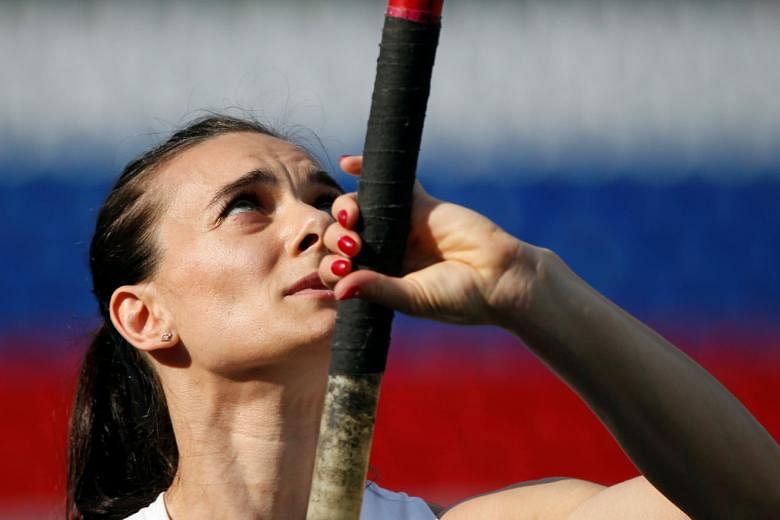LAUSANNE • All potential Olympians from Russia and Kenya must face added scrutiny before being cleared to compete in August's Rio Games because of suspicions about their country's anti-doping programmes, International Olympic Committee executives ruled yesterday.
"The presumption of innocence" of athletes from both countries had been put "seriously into question", the IOC's executive panel announced, following a special summit aimed at keeping drug cheats away from Rio de Janeiro.
The broad condemnation from the powerful IOC panel of the two nations came as the Aug 5 start of the Games loomed with the IOC seeking to tame a series of raging doping scandals.
Russia's entire track and field team has already been banned by the International Association of Athletics Federations (IAAF), following revelations of massive, state-sponsored cheating.
But the IAAF left a window slightly open, saying individuals who definitively prove they were not tainted by the Russian system could still compete in Brazil.
While the IOC has strongly backed the IAAF's move, Moscow has reacted with outrage, condemning a policy of collection punishment over individual responsibility for doping culprits.
Yesterday's IOC meet was closely watched for hints as to whether any Russian track stars could be given the green light for Rio, and which flag they would compete under.
IOC president Thomas Bach dismissed suggestions that Russians could appear under a neutral or Olympic flag.
Any Russian athlete cleared by the IAAF "will compete as members of the team of the Russian Olympic Committee", he said.
It remains highly unlikely that many Russian track athletes will be in Brazil, as the strict eligibility guidelines laid out by the IAAF seem to preclude anyone who trains inside Russia.
Bach detailed fresh consequences of Russia and Kenya being declared non-compliant by the World Anti-Doping Agency.
He said the absence of a positive drug test from inside those countries should not be considered "sufficient" evidence that an athlete is drug free.
This applies to competitors in all the other 27 Olympic sports, aside from track and field, which is under separate scrutiny.
"Each athlete coming from these two countries will have to be declared eligible following...an individual evaluation," Bach said.
Crucially, the IOC did not detail how each sports federation should carry out this individual scrutiny and, with the Games just over six weeks away, time is running short to conduct robust evaluations of every athlete from both countries.
A chorus of Russian leaders spent yesterday condemning the IAAF and IOC for the blanket ban on the country's track stars.
Russia's lower house of parliament said that banning the entire team was tantamount to "using sport as an instrument in a political battle" and said "repressions against competitors never implicated in unfair game" would undermine the Olympic movement.
Those criticisms were echoed in Russian Olympic Committee's president Aleksander Zhukov's address to IOC executives in Lausanne.
He called the ban "an extreme injustice and humiliation" and a violation of Olympic values.
He sought to highlight the hypocrisy of American celebrity sprinters Tyson Gay and Justin Gatlin running in Rio - both of whom have previous positive drug tests - while Russian athletes with clear histories would be barred.
"Banning clean athletes from the Rio Olympic Games... is also legally indefensible," he added, while offering some hope this alleged injustice could be reversed in court. "I think the possibility for Russian track and field athletes to take part at the Olympic Games is still not closed."
AGENCE FRANCE-PRESSE

